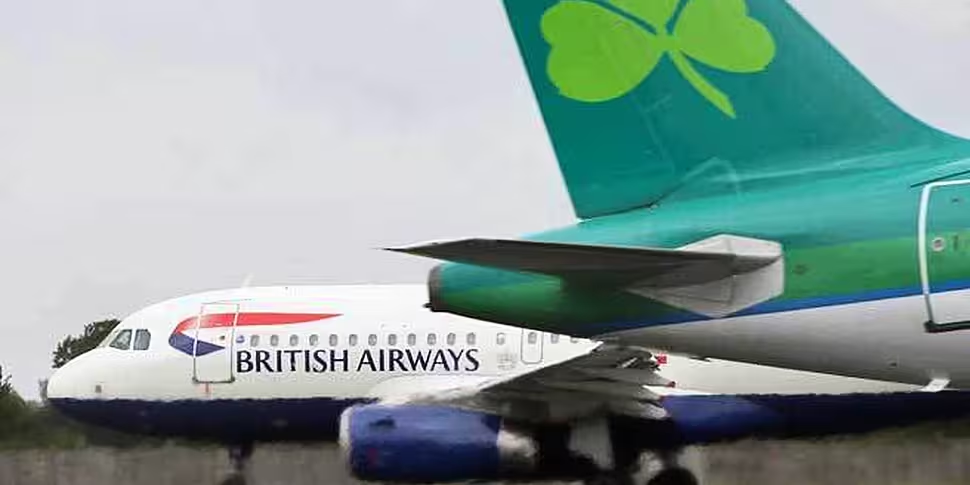Why does the government want to sell Aer Lingus?
Aer Lingus was formed in 1936 and for the rest of the century would remain state-owned, with 75% of the company eventually being floated on the London Stock exchange by the Fianna Fáil-Green coalition in 2006.
Transport Minister Pascal Donohue says the government retains "little or no influence" and says the decision to sell the remaining 25.1% was made in 2012 in the context of State Asset Disposal under the EU/IMF Programme.
Ryanair, who own 29% of Aer Lingus, made a bid (its third) for the airline in 2012 at €1.30 per share, but this was rejected due to the low valuation and predicted issues with competition authorities.
O'Donohue believes that the IAG bid at €2.10 per share is good value and would be better for connectivity, jobs, competition and protecting the airline's brand.
IAG chief executive Willie Wash (who was formerly the chief executive of Aer Lingus) says the deal is necessary to grow the airline and keep it competitive. The sale should allow for more investment in Aer Lingus and the expansion of its fleet.
What is IAG?
International Airlines Group (IAG) is the world’s sixth largest airline group. It owns British Airways, Iberia, Veiling and IAG Cargo, and posted an operating profit of €1.39bn last year (compared to Aer Lingus' €48.4m).
Its fleet contains 464 aircraft, it employs over 59,000 people, and services 200 destinations worldwide. Its largest shareholder is Qatar Airways, which has a 9.99% holding.
Why are the Heathrow slots so important?
Aer Lingus holds 23 slot pairs at Heathrow Airport, Europe's busiest air transport hub. These links are considered to be crucial to Ireland's trade and tourism, and provide guaranteed links between Irish airports and Heathrow. In fact, the Dublin-London route is the second busiest in the world.
Recently SAS sold a slot pair to Turkish Airlines for $22m (€20.3m), and another summer-schedule slot pair to an unknown airline for $60m (€55.4m). Though the value of individual slots varies greatly, the pairs owned by Aer Lingus are estimated to be worth between €770m and €1bn.
IAG's offer will allow the Minister for Finance to retain a 'B share' which will ensure that changes to connectivity will require governmental approval. There is also a legally binding agreement that the Heathrow slots will be kept for seven years, with the final two years dependent on airport charges not rising above a certain level.
Former Aer Arann majority owner Padraig O Céidigh, speaking to Pat Kenny today, raised the possibility of IAG simply leasing out the slots while still retaining ownership. The government has said this guarantee relates to the "disposal" of the slots, so it is unclear if such leasing is possible.
Who is opposing the sale and why?
All major unions have staunchly opposed the sale over fears that jobs could be cut or outsourced.
IMPACT described the deal as "bad for jobs, for Aer Lingus workers and for Ireland’s connectivity and economic development," while SIPTU demanded promises on compulsory redundancies and outsourcing.
In the years after British Airways merged with the flagging Iberian Airlines to form IAG in 2011, 4,500 jobs were cut. The redundancies were part of a restructuring process which saw Iberian return to a healthy profit last year.
Fianna Fáil leader Micheál Martin revealed in the Dáil today the details of a secret report commissioned for Aer Lingus which outlined possible cuts in the case of a sale:
"It talks about ground handling cuts of 20%, catering 40%, maintenance 15% and heavy maintenance, which would go to Eastern Europe, 25%," he said.
When asked, Taoiseach Enda Kenny said neither he or the cabinet had read the report before reaching a decision.
Independent TD Clare Daly said in the Dáil today that the sale was for the benefit of shareholders and not the Irish public, calling it "a new low" for the Government.
Sinn Féin leader Gerry Adams accused the government of "sabotaging" Aer Lingus in a statement
"[IAG] will always put profits and the interests of their shareholders and board members before the interests of the Irish economy, the State or our citizens," he said.
A number of Labour TDs including Joe Costello, Robert Dowds and John Lyons demanded further assurances but last night agreed to back the deal.
Pascal Donohue responded to job concerns during a Morning Ireland interview:
"We have received a commitment from Stephen Kavanagh [Aer Lingus CEO] and from Aer Lingus that they do not foresee the use of compulsory redundancies or non-direct employment."
How will the sale proceed?
IAG launched its formal offer process last night with the publication of its so-called 2.5 document – effectively a summary of the principal elements of the takeover bid.
It now has 28 days from the publication of this 2.5 document (May 26) to send its formal offer document to all shareholders, including Ryanair.
It’s expected this document will issue around June 18, or around 21 days into that 28-day period.
Shareholders then have a further 60 days to respond to the formal offer, though they can respond sooner. Technically, it could be 90 days before we know whether IAG has sufficient shareholder response (90%) for the offer to proceed.









